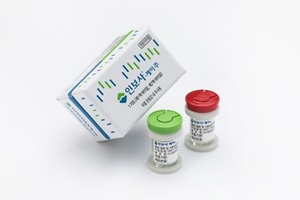Kolon Life Science’s mislabeling one of the ingredients of Invossa-K, gene therapy for degenerative arthritis, for 15 years is sending shock waves through the pharmaceutical industry.
Critics said Short Tandem Repeat (STR) testing, a standard method for paternity testing, would have helped the company identify the drug ingredients accurately, adding that the local regulator might have had a blind spot in drug approval.

Invossa is comprised of human chondrocytes (HC, 75 percent) and transformed cells (TC, 25 percent). In 2004, the company thought TCs were derived from cartilage.
Fifteen years later, however, the company found that TCs were HEK 293 cells, derived from the kidneys. Kolon Life Science discovered the mislabeling after a voluntary STR testing, often used for paternity testing. STR testing demonstrates specific profiles of cells through a genetic test analysis.
As SRT testing was not a state-of-the-art technology, the company has had enough time to identify the origin of the TC. However, the health authorities used the 2004 data when reviewing the approval of Invossa in 2016-2017.
The Ministry of Food and Drug Safety had discussed whether to demand STR testing for Invossa. However, the ministry reportedly decided that STR testing would not be necessary because Kolon’s plant in Chungju, North Chungcheong Province, produced only Invossa and there was no possibility of mixing Invossa with other cells.
“Unlike in Korea where we have an exclusive plant to produce Invossa, in the U.S., the drug is produced in many clinical manufacturing organizations (CMOs) where other cells are also handled. We decided to do STR testing because the U.S. FDA was likely to request clearer data,” an official at Kolon Life Science said.
“Either in Korea or the U.S., no rule mandates STR testing in drug approval. We had only a guideline that recommended STR testing when creating a master cell bank (MCB),” he added.
STR testing is one of several tests to clarify the origin of the cell line. Usually, a pharmaceutical firm conducts STR testing when building an MCB.
In Korea, when a company introduced a cell line from another company, the health authorities request ingredient analysis testing. However, Invossa was not subject to such testing requirement.
The Korean guideline is identical to that of the FDA, the ministry said.
With the suspension of Invossa, biotech companies seeking approval for gene therapies and cell treatments are likely to be mandated to submit results of STR testing in the future, the regulator said.
“We are considering changing the rules to request companies to submit STR testing results when they report documents for drug approval. We will collect opinions from biotech firms and discuss the issue,” an official at the food and drug safety ministry said.

